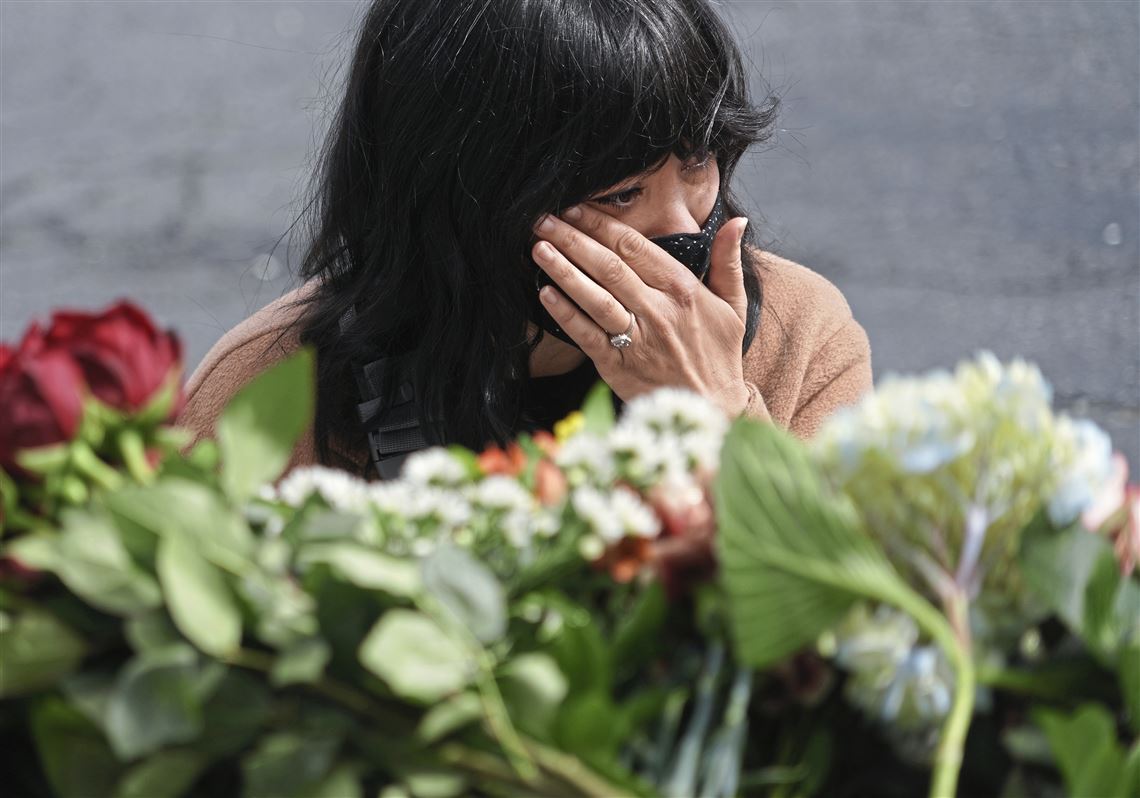Nancy Riley-James, 42, reacts at the makeshift memorial outside Gold Spa on March 18, 2021.
By Bill Schackner
Pittsburgh Post-Gazette
MAR 19, 2021 - Christina Ong, a doctoral student at the University of Pittsburgh, has never been harassed on the street herself, but reading about the rise of anti-Asian incidents nationally made her nervous in recent months to leave her Bloomfield apartment alone.
“I left my house maybe once every two weeks, and that really impacted my physical and mental health,” she said Thursday.
“I generally think I am a really optimistic person and enjoy being around people, but I have these underlying worries that people are perceiving me in a certain way. I am wearing a mask, but they still can tell I’m Asian. So, is there going to be retribution?”
Even before a deadly mass shooting Tuesday in Atlanta drew public outrage, fear had been quietly building for months in cities, including Pittsburgh, where thousands of Asians and Asian Americans live, work and study on its campuses.
Asian women say shootings point to relentless, racist tropes
Irrational rhetoric blaming them for the COVID-19 pandemic, some spread on social media, has added to what some see as a more deeply rooted bias against Asians.
The suspect in the Atlanta attacks told investigators he wanted to eliminate a source of his sexual addiction, police said. But after months of escalating incidents, some violent, it was not lost on many in the general public that six of the eight people killed in multiple massage parlor attacks were Asian women.
Agencies — from the FBI and Pennsylvania Human Relations Commission, to lawmakers and advocacy groups around the country — say they are monitoring the string of incidents.
“The lethal wave of xenophobia and racism towards the [Asian Americans/Pacific Islanders] community calls the ‘Beloved Community’ to lock arms in unity to denounce these acts,” commission Executive Director Chad Dion Lassiter said.
Moved by mounting incidents, Penn State University officials this month reiterated earlier assurances from school President Eric Barron to international students and others, including those of Asian descent.
“You are welcome here,” he wrote. “Your presence enriches our university and the educational experience of all of our students.”
Hundreds in Atlanta rally against hate after spa shootings
Ms. Ong, 28, whose grandparents are from China, is from Sacramento, Calif. She is studying sociology and also works as a researcher for the Asian American Pacific Islander COVID-19 project. As such, she has heard firsthand stories of Asian Americans who have been the victims of harassment. She said women are more likely than men to be harassed in the street, and blue-collar and older individuals are more visible and thus vulnerable.
The problem is affecting behaviors as routine as grocery shopping.
“In conducting interviews with people across the country for this project, I’ve heard stories of people saying, like, ‘Yeah, well, when I’m in the grocery store, I … have to run to an aisle that’s empty because I don’t want to cough or sneeze around other people,’” Ms. Ong said. (continued)


